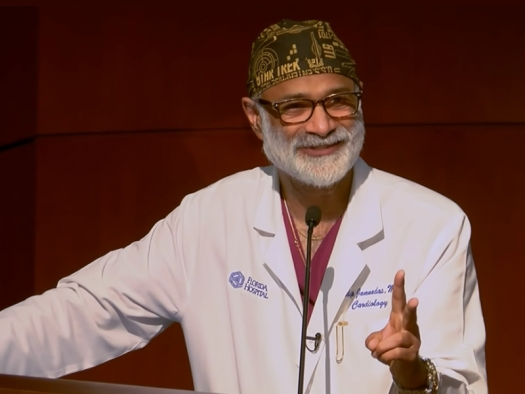PradipJamnadasFastingForSurvival.jpg

Screenshot from video / The Galen Foundation
Pradip Jamnadas, M.D., M.B.B.S., F.A.C.C., F.S.C.A.I., F.C.C.P., F.A.C.P., details the rationale behind dietary restriction and fasting. He discusses how diets and lifestyles have changed over time and multiple generations and how we, as humans, adapt to those changes.
Fasting can bring your insulin level down, help you burn fat, increase your metabolic rate, release a hormone to make new brain cells, boost your growth hormone to grow muscles, and increase your stem cells. Fasting can also be beneficial before chemotherapy for cancer patients, and during a flare up of inflammatory bowel syndrome, rheumatoid arthritis, or lupus. Diabetes and dementia can also improve with fasting.
Jamnadas advocates drinking lots of water during fasting and recommends preparing for fasting by cutting down on carbohydrates, especially processed foods and sugar. He also addresses issues that arise upon breaking a fast and recommends what to eat for nutritional support.
"If you want to simply replicate the Paleolithic way, eat once a day or twice a day only and do it in a time-restricted fashion," he says. Other options include longer fasts of 1 to 7 days for different purposes.
Jamnadas recommends that if you want to do a serious fasting program that you talk with someone who knows a lot about fasting, and talk with your doctor, especially if you are on medications for diabetes or high blood pressure.
Fasting For Survival Lecture by Dr Pradip Jamnadas
The Galen Foundation


